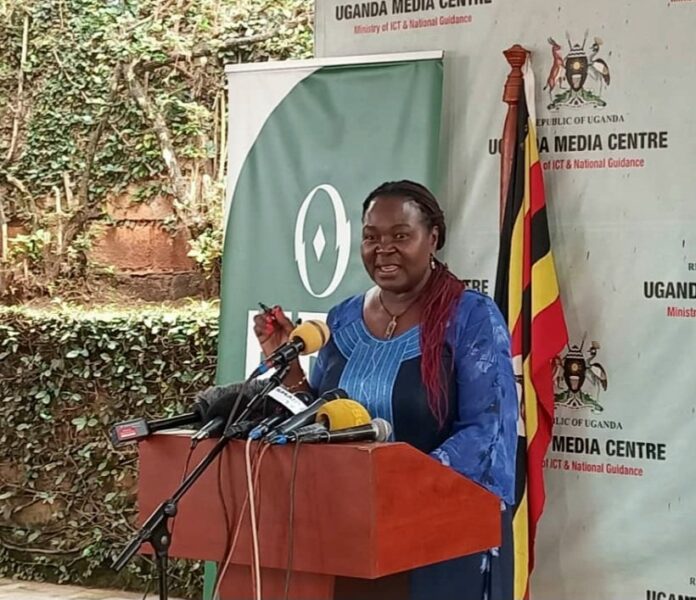The government of Uganda, with support from the World Bank, is set to kick-start the process to have a total of 1,360,000 new electricity connections under the Energy Access Scale-up Project (EASP).
This was announced by Ruth Nankabirwa Ssentamu, the Minister of Energy and Mineral Development, on Friday, January 5, 2024, while addressing the press at the Uganda Media Centre in Kampala.
She said households, industrial parks, small and medium enterprises, refugees, and host communities will get connected. Minister Nankabirwa said the project is expected to kick off in January 2024 and will be implemented alongside other existing initiatives, such as the hybrid connection policy and the rebate policy.
She said the government, through the Uganda Development Bank, has provided a credit line of UGX 270,000 per new connection for those who are unable to pay a lump sum of UGX 470,000, adding that under this framework, about 36,855 applications had been received after a year and 27,724 had already been connected to electricity supply as of December 2023.
The minister said Ugandans whose houses are located near an electricity pole can now make a down payment of UGX 200,000 to get connected to electricity and clear the balance of UGX 270,000 through a 15% part payment deducted on their energy purchases over a period of eight years.
“With the completion of the Gulu substation, the Achwa-Agago substation, the Kole substation, the Olwiyo substation, the expansion of the Lira substation, and the much-awaited Agago-Gulu Kole 132kV transmission line, the people of West Nile and Northern Uganda are beginning to forget the issues of unreliable, inadequate, and intermittent power supply. Works on the Nebbi and Arua substations are currently standing at 98% complete,” Minister Nankabirwa said.
She says the Energy Policy for Uganda 2023 aims to achieve the electricity generation capacity target of 52,481 MW by 2040 with a grid access rate of 80%.
According to Minister Nankabirwa, the government is also set to abandon the current electricity consumer’s Yaka metre by October 2024.
“We have set a target to have all of Uganda’s electricity consumers’ Yaka (prepaid) metres migrated onto the New Token Identification System by October 2024 to be able to continue purchasing units for their electricity supply seamlessly,” she added.
Nankabirwa said the change is happening on a global scale and will affect all consumers in the prepayment metering system, adding that the government has set up a special Joint Technical Committee (JTC) to supervise and manage the transition process caused by UMEME’s exit.
She added that efforts are being made to support the Uganda Electricity Distribution Company Limited to take over the operations of the UMEME network on April 1, 2025, and it has been given the financial and technical support required to seamlessly receive and operate the network without any consternation.















